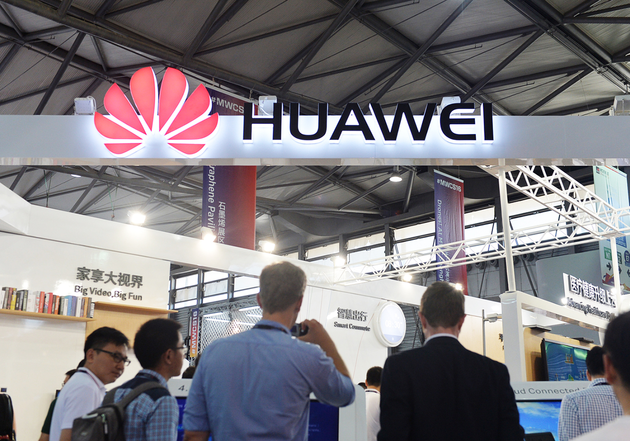Jan. 10 (NBD) -- The U.S. telecoms carrier AT&T Inc. backed off its deal to sell smartphones made by Chinese electronics giant Huawei Technologies Co. (Huawei) in the U.S., the Wall Street Journal reported on Tuesday, citing people familiar with the matter.
This news, if is true, will deliver a blow to Huawei which has been trying to crack the U.S. market, given that China, the U.S. and Europe are the world's top three markets of high-end smartphones.
NBD contacted Huawei in order to shed some light on this matter.
The company didn't directly comment on the deal with AT&T but told NBD that for the last five years, Huawei has proved itself with its high-end products launched all over the world and the company would soon release its newest product and the detailed on-sale date.
An insider at Huawei said to NBD that the company will sell smartphones in the U.S. this year through public channels such as online platforms and retail stores instead of counting on the U.S. domestic carriers, just like the way Huawei adopted for the past several years.
Last year, Huawei gained a small slice of sales in the U.S. through retailers such as Walmart and Best Buy.

Photo/VCG
While Huawei takes up approximately 10 percent of global smartphone market, standing as the 3rd biggest handset manufacturer globally, behind Apple and Samsung according to data for International Data Corporation, it barely registers in the U.S. where Samsung and Apple account for over 70 percent of the high-end handset market.
Previously, Huawei sought to change this situation with its latest series of phones, the Mate 10. Yu Chengdong, CEO of Huawei Consumer Business Group, said in an interview with the media that the company planned to sell flag-ship high-end handsets in the U.S. through carriers, the first series being the Mate 10.
Yu expected at the time that Huawei's phones would have a price advantage in the U.S. market.
Unlike the European market and other overseas markets, the U.S. carriers control the handset sales on its soil, taking up more than 80 percent of the total sales. No phone maker can achieved a large-scale sales without the support of the carriers.
AT&T has surpassed Verizon and become the largest U.S. carrier after its purchase of T-Mobile USA six years ago.
According to financial reports of AT&T, the company sold as many as 10.6 million smartphones via its AT&T Next program alone in the January-to-September period in 2017.
Ever since 2012, Huawei has expanded its business to 170 countries and regions from previous 120 and forged partnership with 45 telecoms carriers out of the world's top 50 carriers.
Such high-profile status the phone maker has established raised some concerns among the U.S. security and intelligence experts that the major carriers in the U.S. may be tempted and become clients of Huawei.
Yu once said that Huawei phones wouldn't introduce security issues in the U.S.
The entry of Huawei into the U.S. smartphone market may pose a certain challenge to Qualcomm Inc., California-based chip giant. The Mate 10 series is powered by Huawei's own Kirin chips rather than those produced by Qualcomm.
Email: gaohan@nbd.com.cn


 川公网安备 51019002001991号
川公网安备 51019002001991号





